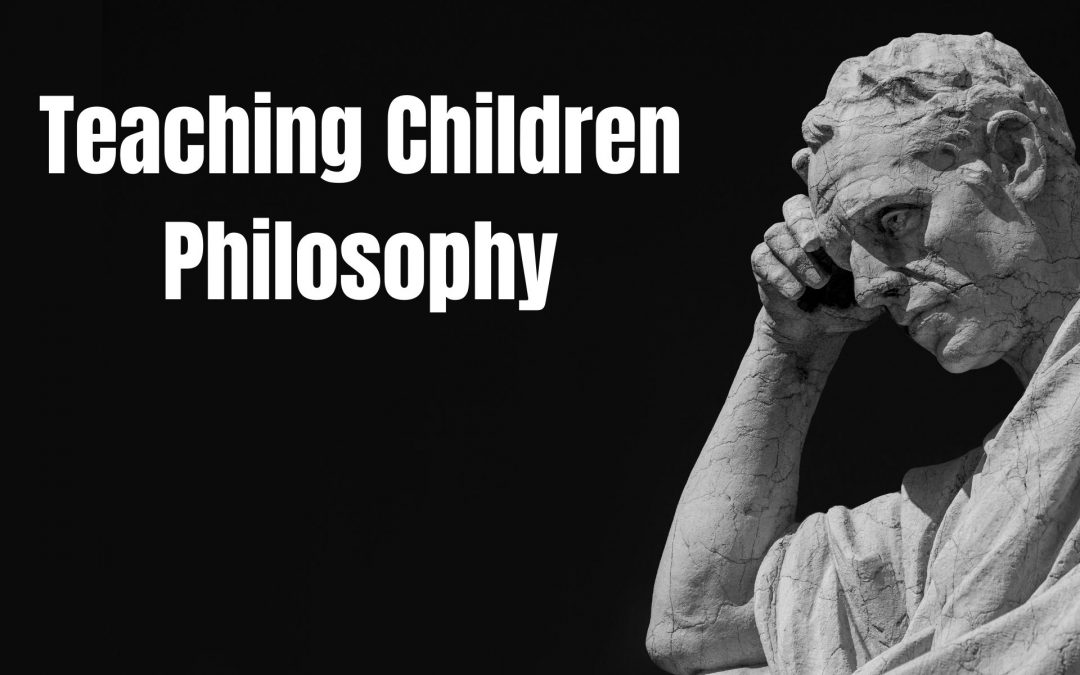Life is full of philosophical perspectives that advance critical thinking skills and respect opposing viewpoints. Critical thinking is a mandatory skill to obtain as it enhances the ability to ask questions, seek an understanding, and make decisions. Philosophy enables a child to engage in ethics and assert issues. Colleges will foster critical thinking in all classrooms where students are expected to dissect information and read in-between the lines. A student must be able to dig deeper by analyzing information with logic and reasoning. Many of these reasons have been thoroughly studied by numerous philosophers over time.
Here are three areas of philosophy to teach children:
-
Metaphysics
Inquiring about reality is a concept of existence and purpose. Having your child learn about the universe and question the essence of time falls under the category of metaphysics. This type of philosophy can tie into any religion based on your home values and beliefs as it connects to humanity, the future, afterlife, and what is eternal. Children will wonder about the truth of our existence and what is considered “real,” and discussing metaphysic analogies can aid in the child creating their own perception or connecting with another perspective.
-
Epistemology
The theory of knowledge is known as the study of epistemology. An epistemic behavior entails the search of information. Achieving wisdom is a pursuit that all students experience. However, questioning such knowledge is an appropriate action that must also take place. Have your child ask themselves if the source of information is reliable and valuable. Have them create arguments and claims with their learning materials. Ask them how the data is meaningful and what they can gain from learning more about the topic.
-
Axiology
Morals and values are critical in society. Understanding character and the difference between right and wrong has many viewpoints. These perspectives branch into axiology, where conduct is judged based on values of ethics and aesthetics. We place value on almost everything. Recognizing when we apply these values, how these values affect our lives, and in what amount the value has quality is a deep-thinking tool for students to address.
Here are a couple of philosophers to look into:
- John Locke, a philosopher that inspires metaphysicians, discussed personal identity in correlation with consciousness. This coincides with memories factoring a human being. Locke argued that identity is not physical but a matter of the mind. A great lesson from Locke is that no matter how much our appearance changes, we do not change on the inside with how we identify ourselves.
2. A great philosopher to research is Sir Isaac Newton—especially for children that love all things science! Newton was considered a natural philosopher and eventually became known as a scientist. He stated, “for every action there is a reaction.” This is important for not only math and science but also for all things life. Gravity is the reaction to jumping, but what is the response to other issues we all decide to act upon? Questioning why something happens and what might occur is essential for children to ponder.
Other philosophers that you can introduce are:
- Aristotle
- Immanuel Kant
- John Stuart Mill
- Plato
- Confucius
There are plenty of reading materials that you can present to your children, no matter the age, and discuss the philosophical meanings.
All these areas and examples favor the importance of thinking and reflecting responsibly.
Jessica Weger is pursuing a bachelor’s degree in Journalism and Mass Communication at the University of Arizona Global Campus. Providing care for the disabled has been a lifelong journey that made Jessica strive to bring aid and awareness with her writing. She has two little boys that keep her on her toes while bringing out the fun in life. The saying “it takes a village to raise a child,” is true, but she also believes that sometimes it takes a village to be the best we can be. Jessica has a creative writing background with a published collection of poetry and desires to be the glue in piecing together stories that make a difference.

